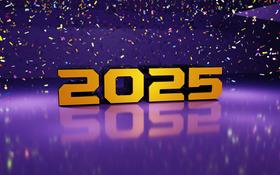Top Rankings
Bellmore-Merrick Central High School District ranks among the top 20% of public school district in New York for:
Category
Attribute
Overall Rank
Highest overall rank (Top 10%)
Math Proficiency
Highest math proficiency (Top 10%)
Reading/Language Arts Proficiency
Highest reading/language arts proficiency (Top 10%)
Science Proficiency
Highest science proficiency (Top 10%)
Graduation Rate
Highest graduation rate (Top 5%)
Community Size
Largest student body (number of students) (Top 1%)
For the 2025-26 school year, there are 2 public middle schools serving 1,743 students in Bellmore-Merrick Central High School District. This district's average middle testing ranking is 9/10, which is in the top 20% of public middle schools in New York.
║┌┴¤═°╣┘═° Middle Schools in Bellmore-Merrick Central High School District have an average math proficiency score of 85% (versus the New York public middle school average of 51%), and reading proficiency score of 62% (versus the 51% statewide average).
Minority enrollment is 29% of the student body (majority Hispanic), which is less than the New York public middle school average of 63% (majority Hispanic).
Overview
This School District
This State (NY)
# Schools
5 Schools
1,657 Schools
# Students
5,222 Students
888,790 Students
# Teachers
485 Teachers
83,542 Teachers
Student-Teacher Ratio
11:1
11:1
Student By Grade
District Rank
Bellmore-Merrick Central High School District, which is ranked #84 of all 1,008 school districts in New York (based off of combined math and reading proficiency testing data) for the 2022-2023 school year.
The school district's graduation rate of 97% has increased from 95% over five school years.
Overall District Rank
#73 out of 1017 school districts
(Top 10%)
(Top 10%)
Math Test Scores (% Proficient)
78%
52%
Reading/Language Arts Test Scores (% Proficient)
70%
49%
Science Test Scores (% Proficient)
93%
78%
Graduation Rate
97%
87%
Students by Ethnicity:
Diversity Score
0.46
0.73
% American Indian
n/a
1%
% Asian
9%
9%
% Hispanic
14%
30%
% Black
3%
20%
% White
72%
37%
% Hawaiian
n/a
n/a
% Two or more races
2%
3%
All Ethnic Groups
District Revenue and Spending
The revenue/student of $30,442 in this school district is less than the state median of $31,324. The school district revenue/student has stayed relatively flat over four school years.
The school district's spending/student of $30,250 is less than the state median of $32,199. The school district spending/student has stayed relatively flat over four school years.
Total Revenue
$159 MM
$78,541 MM
Spending
$158 MM
$80,737 MM
Revenue / Student
$30,442
$31,324
Spending / Student
$30,250
$32,199
Best Bellmore-Merrick Central High School District ║┌┴¤═°╣┘═° Middle Schools (2025-26)
School
(Math and Reading Proficiency)
(Math and Reading Proficiency)
Location
Quick Facts
Rank: #11.
Merrick Avenue Middle School
Magnet School
(Math: 85% | Reading: 65%)
Rank:
Rank:
9/
Top 20%10
1870 Merrick Ave
Merrick, NY 11566
(516) 992-1200
Merrick, NY 11566
(516) 992-1200
Gr: 7-9 | 846 students Student-teacher ratio: 11:1 Minority enrollment: 23%
Rank: #22.
Grand Avenue Middle School
(Math: 86% | Reading: 58%)
Rank:
Rank:
9/
Top 20%10
2301 Grand Ave
Bellmore, NY 11710
(516) 992-1100
Bellmore, NY 11710
(516) 992-1100
Gr: 7-8 | 897 students Student-teacher ratio: 12:1 Minority enrollment: 33%
Recent Articles

Texas Schools Enrollment Trends & Policy in 2025
Latest data and policy changes on Texas public school enrollment growth, funding, and virtual education in 2025.

Financial Aid & Hidden Costs in ║┌┴¤═°╣┘═° Schools
Learn about financial aid and hidden costs in public schools. Discover what parents should budget for beyond tuition-free education.

NYC Schools Still Most Segregated in 2025
Despite reforms, New York City schools remain the most segregated in the U.S. in 2025. HereÔÇÖs what parents and educators need to know.





